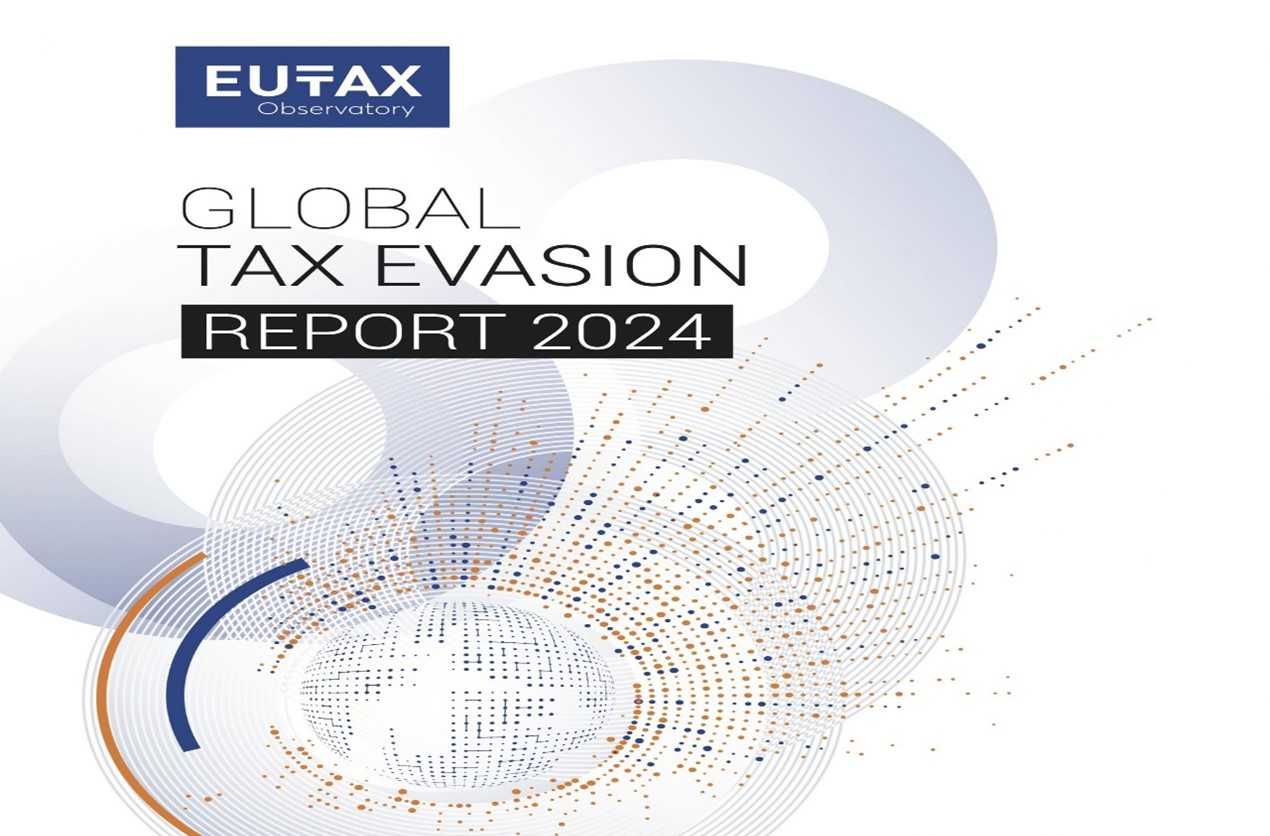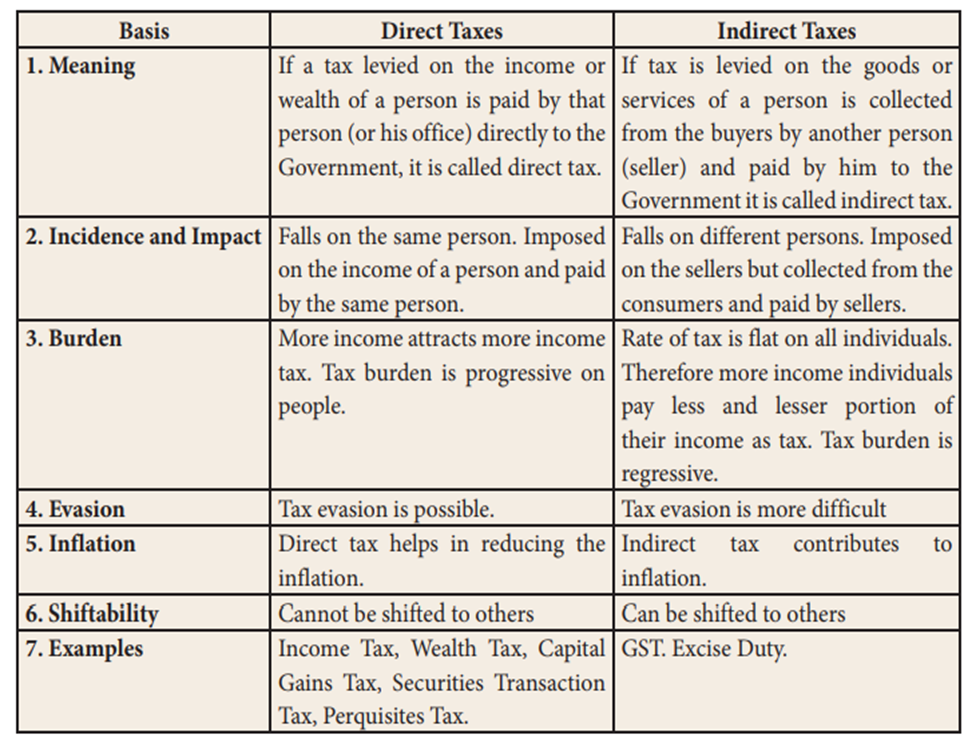- Courses
- GS Full Course 1 Year
- GS Full Course 2 Year
- GS Full Course 3 Year
- GS Full Course Till Selection
- Answer Alpha: Mains 2025 Mentorship
- MEP (Mains Enrichment Programme) Data, Facts
- Essay Target – 150+ Marks
- Online Program
- GS Recorded Course
- Polity
- Geography
- Economy
- Ancient, Medieval and Art & Culture AMAC
- Modern India, Post Independence & World History
- Environment
- Governance
- Science & Technology
- International Relations and Internal Security
- Disaster Management
- Ethics
- NCERT Current Affairs
- Indian Society and Social Issue
- NCERT- Science and Technology
- NCERT - Geography
- NCERT - Ancient History
- NCERT- World History
- NCERT Modern History
- CSAT
- 5 LAYERED ARJUNA Mentorship
- Public Administration Optional
- ABOUT US
- OUR TOPPERS
- TEST SERIES
- FREE STUDY MATERIAL
- VIDEOS
- CONTACT US
Global Tax Evasion Report, 2024
Global Tax Evasion Report, 2024

Latest Context:
Recently, the 'Global Tax Evasion Report 2024' was released by the European Union Tax Observatory.
More about the news:
- Many issues were highlighted in the report like tax evasion, the Global Minimum Tax (GMT) and the measures to tackle tax evasion.
- The report also mentioned the effects of international reforms adopted in the last 10 years.
What is Tax Evasion?
1. It is an illegal act of underreporting the income, hiding money in offshore (outside country) accounts, or engaging in other fraudulent activities to reduce the amount of taxes owed to the government.
2. It is a criminal offense, as it involves intentionally evading the payment of taxes that a person or entity legally owes. Tax evasion is considered a serious financial crime and is punishable by fines, penalties, and even imprisonment in many countries.
3. It is distinct from tax avoidance, which is the legal practice of minimizing one's tax liability through legitimate means such as taking advantage of tax incentives, deductions, and exemptions provided by tax laws.
Key Highlights of the Report are:
- Offshore Tax Evasion: Offshore tax evasion has come down in the last decade. In 2013, almost 10% of the world's GDP was stored in global tax havens (countries having very low tax rates), but now only 25% of this 10% remains untaxed.
- Tax Rates:
-
-
- Many global billionaires have effective tax rates in between 0% to 0.5% of their wealth, due to the high use of shell (only exist in papers) companies to avoid income taxation.
- The billionaires in US have an effective tax rate of 0.5% of their wealth, while it is 0% in case of French billionaires.
-
-
- Profit Shifting by MNCs: Almost USD 1 trillion was shifted to tax havens by Multinational Corporations (MNCs) in 2022, which is equal to 35% of the profits they earned outside their home countries.
- Policy Choices: Things like tax evasion and profit shifting to tax havens are not natural occurrences but result of loopholes in policies. There is a need to analyse the consequences of tax policies and make improvements for better tax systems.
Recommendations of the report are:
- It advocated for a global minimum tax on billionaires, proposing a rate of 2% of their wealth.
- To find ways to tax wealthy people, who were long-term residents of a country and choose to move to a low-tax country. It is essential for the governments to increase their tax revenue, tackle wealth inequality, and to fund important services like education, healthcare, and infrastructure.
- To make a reform in the international agreement on minimum corporate taxation to implement a rate of 25%.
- To implement ways to collect some of the tax deficits of MNCs and billionaires in case global agreements fails on these issues.
What are the international reforms done to combat tax evasion?
- Common Reporting Standard (CRS): The CRS is a global standard for the automatic exchange of financial account information between tax authorities. More than 100 countries have committed to implementing CRS, which helps to identify and track funds held in offshore accounts, making it more challenging for taxpayers to evade taxes by hiding assets abroad.
- Base Erosion and Profit Shifting (BEPS) Project: Led by the Organization for Economic Co-operation and Development (OECD), the BEPS project aims to address tax avoidance strategies used by multinational corporations. The project has resulted in changes to international tax rules to prevent profit shifting and ensure that companies are taxed, where they generate economic value.
- Global Forum on Transparency and Exchange of Information for Tax Purposes: This international organization, supported by the OECD, works to ensure that countries are effectively implementing international standards for information exchange and transparency.
- Digital Taxation Initiatives: Some countries are exploring and implementing new digital taxation measures to ensure that multinational tech companies pay taxes in the countries, where they generate digital revenues.
- Global Minimum Tax (GMT):
- GMT is a tax policy concept and initiative aimed at setting a floor on corporate tax rates worldwide to prevent multinational corporations from shifting profits to low-tax jurisdictions to reduce their tax liabilities.
- The Organization for Economic Cooperation and Development (OECD) developed a proposal having a corporate minimum tax of 15% on foreign profits of large multinationals.
- In 2021, a group of 136 countries (including India) set a minimum global tax rate of 15% for MNCs to make it harder for them to avoid taxation.
Conclusion:
These initiatives represent a global effort to address tax evasion and promote greater transparency in international financial transactions. However, the effectiveness of these reforms depends on the willingness of countries to enforce them and collaborate with one another. Tax evasion remains a complex issue, and new challenges continue to emerge as tax laws and practices evolve.
Additional Information:

Must Check: Best IAS Coaching In Delhi



